Publications
Articles, publications, books, tools and multimedia features from the U.S. Institute of Peace provide the latest news, analysis, research findings, practitioner guides and reports, all related to the conflict zones and issues that are at the center of the Institute’s work to prevent and reduce violent conflict.
On the Issues: What if Kabul Bank Fails?
Afghanistan’s largest commercial bank, Kabul Bank, went into turmoil after its top two directors stepped down in early September 2010 amid allegations of systemic corruption. Kabul Bank shortly thereafter froze the assets of the former chairman and former chief executive officer, as well as those of several other shareholders and major borrowers. USIP’s Raymond Gilpin provides context and offers his perspective on this crisis.
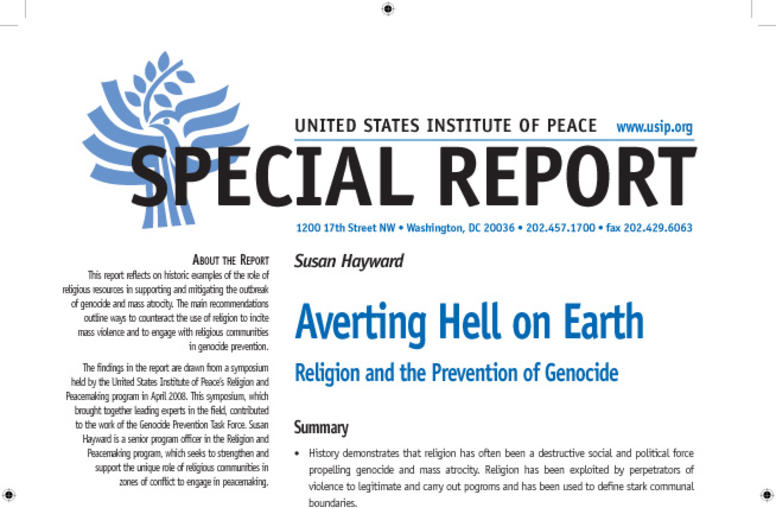
Averting Hell on Earth: Religion and the Prevention of Genocide
This report reflects on historic examples of the role of religious resources in supporting and mitigating the outbreak of genocide and mass atrocity. The main recommendations outline ways to counteract the use of religion to incite mass violence and to engage with religious communities in genocide prevention.
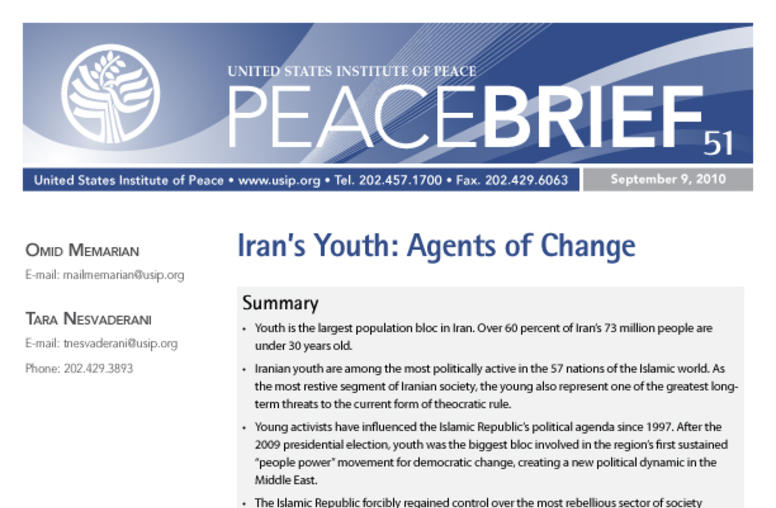
Iran’s Youth: Agents of Change
The impact of Iran’s youth on the political, economic and social agenda of the country over the next 25 years is important for U.S. policymakers to consider when facing complex decisions in balancing Iran’s nuclear program and its internal political turmoil.
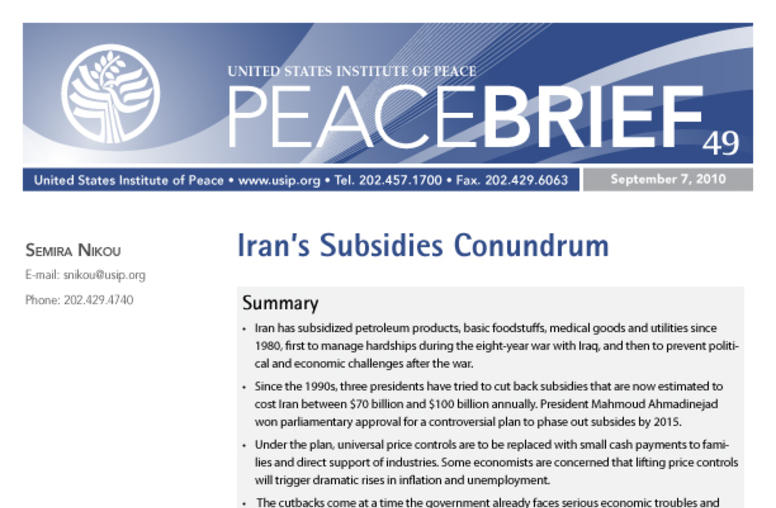
Iran's Subsidies Conundrum
This Peace Brief was written in advance of Iran’s subsidy reform. Currently scheduled for the end of September, the reform is one of the most debated and anticipated economic overhauls in the country. It has the potential to incur severe consequences in a country already burdened by sanctions and fraught with inflation and unemployment. At the same time, reform can potentially discourage waste, reduce inefficiencies in industries, and be a catalyst for economic liberalization.
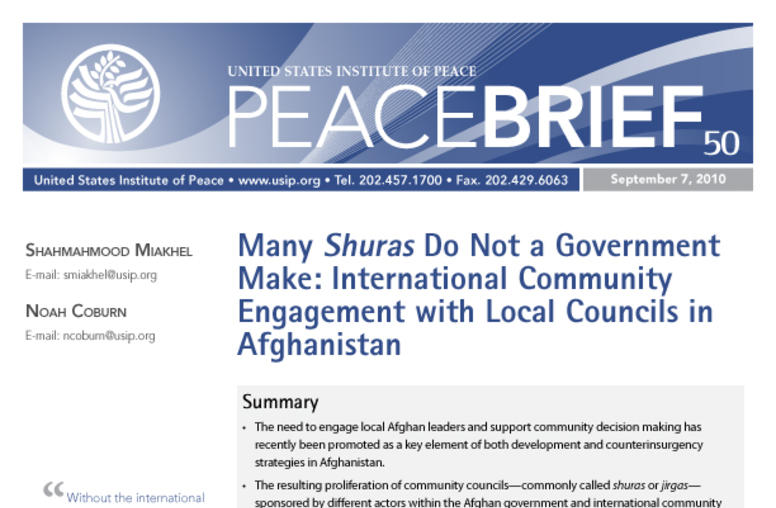
Many Shuras Do Not a Government Make: International Community Engagement with Local Councils in Afghanistan
The need to engage local Afghan leaders and support community decision making has recently been promoted as a key element of both development and counterinsurgency strategies in Afghanistan. This Peace Brief supports the attempts to create a coherent long-term goal of local governance based on legitimate local actors, most likely selected through elections.
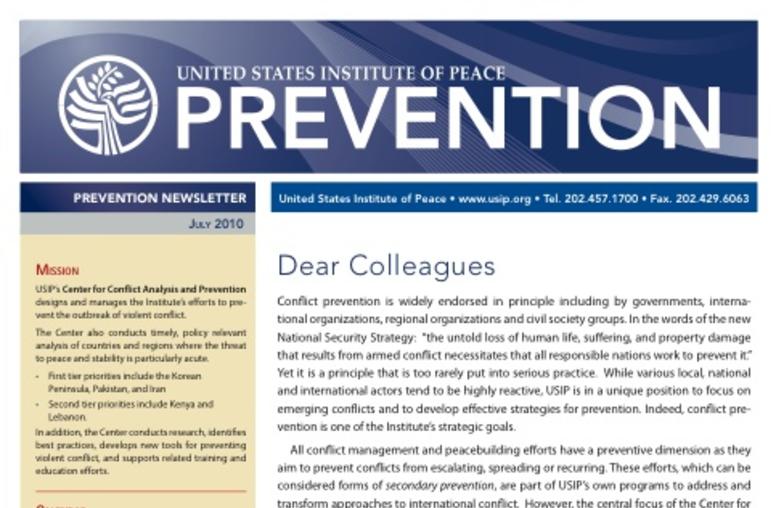
USIP Prevention Newsletter - September 2010
The bimonthly Prevention Newsletter provides highlights of CAP's conceptual work, its region specific work aimed at helping to prevent conflicts in Africa, the Middle East, South and Northeast Asia, and the special projects on genocide prevention and nonproliferation. It also provides Over the Horizon thinking on trends in different regions, as well as CAP events, working groups and publications.
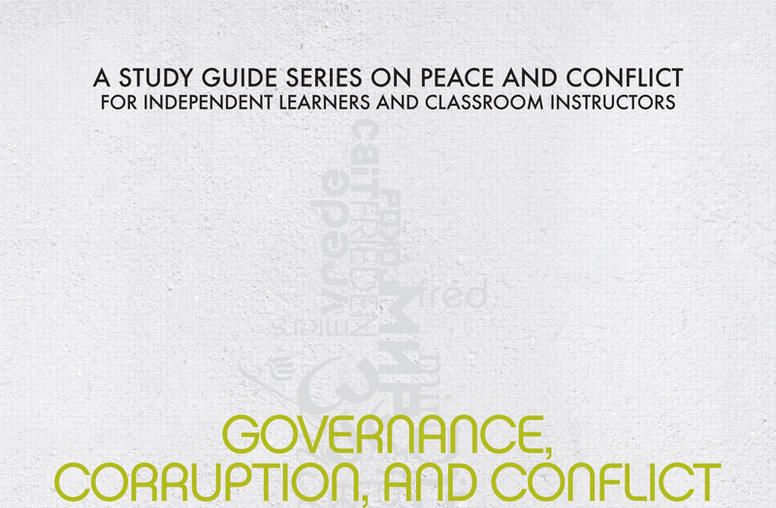
Governance, Corruption, and Conflict
Corruption exists in all societies but its cost are particularly high for states emerging from conflict. Not only can it retard development but it can also create further instability. This study guide will help students understand the relationship between corruption and conflict and learn about ways to address corruption and promote good governance.
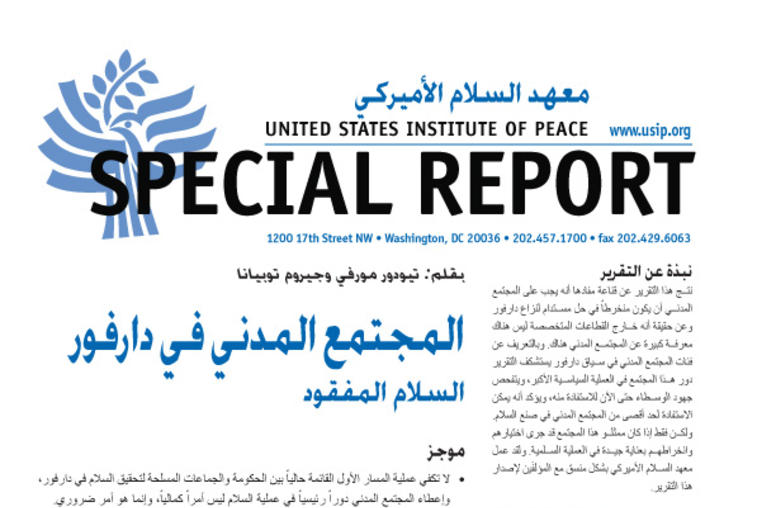
Civil Society in Darfur (Arabic Edition)
This report explores civil society’s role in Darfur's greater peace process, examines mediators’ efforts to harness civil society to date, and argues that civil society could be extremely useful to the peacemaking process, but only if its representatives to the process are carefully selected and properly involved in the process.
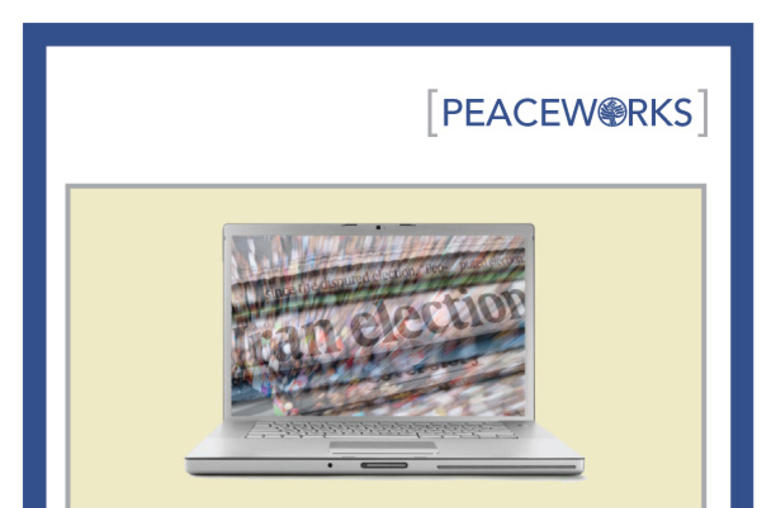
Blogs and Bullets: New Media in Contentious Politics
In this report from the United States Institute of Peace’s Centers of Innovation for Science, Technology, and Peacebuilding, and Media, Conflict, and Peacebuilding, a team of scholars from The George Washington University, in cooperation with scholars from Harvard University and Morningside Analytics, critically assesses both the “cyberutopian” and “cyberskeptic” perspectives on the impact of new media on political movements.
Ambassador Christopher Hill on the Next Chapter in Iraq
After a seven-year military presence, the U.S. shifts to a civilian-led effort in Iraq, with some 50,000 U.S. troops remaining in the country. Retiring U.S. Ambassador to Iraq Christopher Hill spoke at the United States Institute of Peace on August 18, 2010 about this major transition, the current situation in Iraq and relations with the U.S. going forward. Read the event analysis, Ambassador Christopher Hill on the Next Chapter in Iraq